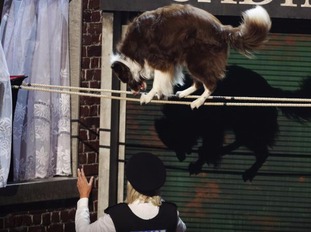'Inside Out' takes us inside the head of an 11 year old girl, and the 5 emotions which direct her responses to the world. 'Joy' is in charge inside the girls head, but anger, fear, disgust and sadness all chip in.
One of the best things about the film is that 'Sadness' goes from being a marginal, misunderstood feeling to one that's indispensable, and there's a sense that maturity involves a more complicated mix of feelings than just being joyful all the time.
However there's also a missing ingredient: alongside the 5 emotions there's no role for reason, conscience, soul, or will. Character emerges from the interaction of the emotions. The emotions moderate each other, but the 'train of thought' only visits occasionally to take things into long-term memory, and 'abstract thought' is a hazardous and destructive zone hidden at the back of the mind.
On Sunday we used a clip from the movie in our cafe service, the following day I stumbled across this:
"there are seven principal affections that rise by turns form the one affective disposition of the soul: hope and fear, joy and grief, hatred, love and shame. All these can be ordered at one time, and disordered at another."
'Ordered' means directed towards the right thing - hating justice would be disordered, as would fear of something harmless. The writer? Richard of St. Victor a 12th century monk and theologian. Fear, joy, hatred (anger), shame (disgust) and grief (sadness). Together in Inside Out, the 5 characters all 'love our girl', so hope is the only one missing.
Richard writes of virtue being a state where our emotions are rightly ordered, and rightly moderated. I.e. directed towards the right thing, with the right intensity.
"one ought to keep cautious watch over all the virtues so that they are not only ordered but also moderated. For excessive fear often falls into despair; excessive grief into bitterness; immoderate hope into presumption; overabundant love into flattery; unnecessary joy into dissolution; intemperate anger into fury. And so in this way virtues are turned into vices if they are not moderated by discretion"
This makes a lot of sense, but can sound a bit uptight. I'm put in mind of the imam in Rev who occasionally declares 'too much humour'. Don't we need to let it all out at times? Digital Nun has this to say on the death of David Bowie:

